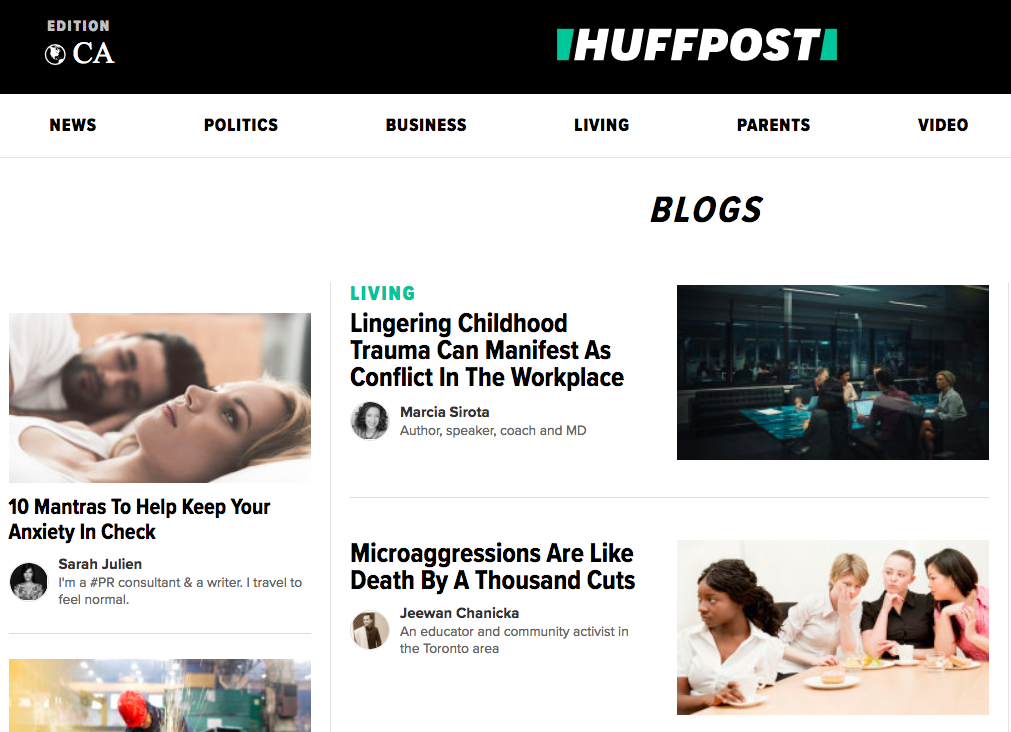We’re living in an era where people and groups are not only demanding to be heard; they’re demanding that action be taken and won’t back down until that happens.
For years I’ve demanded to be heard and to have action taken. I am 28 years old, was born to a single intellectually disabled mother, was raised by my grandmother who was diagnosed with Alzheimer’s when I was seven years old and subsequently put into a nursing home. My mother began to physically abuse me and the Children’s Aid Society apprehended me when I was nine and made me a Crown Ward when I was 10. Between 1999 and 2008, I lived in 16 group and foster homes.
My first taste of advocacy came when I was 13 years old (the same year I was diagnosed with mental illness) and called Ontario’s Child Advocate to report that my group home was buying Cheerios despite my fellow residents and I wanting a different yet equally healthy cereal. We wanted to have a say and we wanted to be given a choice, since we did not choose the ordeal each of us was going through.
When I was 18, mental health organizations I was formally a client of and Ontario’s Child Advocate asked me to advise and consult them.
Over the years, I have evolved from advocating for youth in care to advocating for people like myself with mental illness.
In 2012, HuffPost Canada asked me if I’d be interesting in blogging for them about mental health. It was made clear I wouldn’t be paid.
I am against free labor. I sued my former internship placement after they refused to pay me when I continued to do work for them for a few weeks after my internship ended. When I was in journalism school and in paralegal school I was often told that if I wanted to be successful, I’d have to begin my career by paying my dues. Perhaps the reason why I’m not employed as a journalist or paralegal is because I refuse to volunteer for employers that choose profit over investing in people.
However, since blogging for HuffPost, I have given almost two-dozen paid speeches about living with mental illness.
My voice has been heard and listened to internationally. My HuffPost blog was cited as a resource in the book “Ethics in Mental Health-Substance Use” by David B. Cooper of London, England, and Adam Santeusanio published an essay in The University of Arkansas at Little Rock Law Review that quoted my HuffPost blog. In addition, I have given interviews to media outlets from across Canada about topics I discuss in my blogs.
A benefit of blogging for HuffPost is that professional editors vet my blogs, some of my ideas are challenged and I’m also asked to provide proof of certain things I say in my blogs. Not every blog I submit is published.
I told myself from the moment HuffPost invited me to blog for them that I would stop if it ever began to feel like a job. For me, blogging isn’t a job. Rather it’s an extension of the advocacy I do outside of the public eye.
It’s also therapeutic. I only blog when I’m in the mood to do so, which usually happens when something upsets or angers me. When I blog while in a certain mindset, I just have to sit in front of my computer and let my fingers do their thing. I can easily write a 500 to 800 word blog in 15 or 20 minutes when I’m upset. In my opinion, some of my most widely shared blogs are the ones I wrote when I was really upset.
All I ever wanted was for people to listen to me and debate ideas I have for mental health change and reform. HuffPost has opened up doors for me that I didn’t even know existed. This is why I have no issue being an unpaid blogger for HuffPost.

